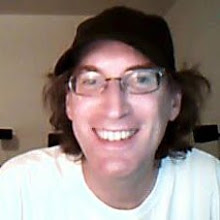The chapter on biology contains a section explaining why the creationist argument that evolution violates the second law of thermodynamics is wrong. (More explanation here and here.) The authors get all of the science right, but they do make one glaring error of logic. Commenting on an anti-evolution book by Robert Kofahl, Goldstein says:
Kofahl is raising two distinct points: one concerns the possible origin of life from inanimate matter; the second is the evolution of complex, many-celled many-organed creatures--monkeys, trees--from one-celled organisms. He is right that if either could be shown to violate the second law, the case for special creation by a deity would be stronger.(my italics)
This an example of the False Dichotomy Fallacy. It is not the case that there are exactly two explanations for the origin of life, evolution or creationism, such that if you manage to falsify evolution then creationism must therefore be true. If the theory of evolution were falsified, it would only mean that the theory of evolution had been falsified. There could be any number of alternatives (that's why it's a false dichotomy). Creationists must still make the positive case for their own alternative to evolution; negative arguments against evolution don't count.
This is not unlike the procedure for hypothesis testing: you start with a null hypothesis, and attempt to prove with a certain degree of confidence some alternative hypothesis. If you fail to prove the alternative hypothesis, then this only means that you failed to prove the alternative hypothesis. The outcome of a test of the alternative hypothesis has no bearing on the truth of the null hypothesis, which must be established via some other means.
The creationist argument is wrong for another reason. When a scientific theory is falsified, it isn't simply discarded; rather, it gets subsumed into a larger, more general theory. This is especially true when the theory that has been falsified has had a long history of successful predictions. The new theory that incorporates the old one is able to make successful predictions too, but more of them, beyond the edges where the old theory failed. The canonical example of this is how Einstein's theory of relativity falsified Newtonian mechanics. Newton's laws been used successfully for over 350 years; it was so successful that 19th century scientists simply assumed that it was the final word on physics. But even though they have been falsified by the theory of relativity, Newton's laws still continue to be used (because they're a lot simpler) when relativistic effects can be ignored.
Goldstein et al make exactly this point on the last page:
Philosophers of science have tried to characterize the difference between the natural sciences and other fields of rational study by this feature of the theories we have described: they don't get replaced by new discoveries but rather get incorporated by them. Such sciences are said to be "cumulative."All scientifically literate people should be familiar with the Second Law of Thermodynamics. I can heartily recommend The Refrigerator and the Universe to anyone who desires to educate himself.





No comments:
Post a Comment